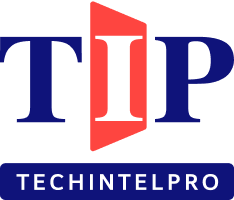


The digital workplace is undergoing a fundamental transformation, driven by the dual forces of hybrid work and artificial intelligence. According to a new global research report from Information Services Group (ISG), enterprises are accelerating the adoption of AI-enabled workplace platforms, moving beyond experimentation to integrate AI deeply into their core IT strategies. This shift is focused on achieving measurable gains in productivity, security, and the digital employee experience (DEX) across distributed work environments.
Quick Intel
Enterprises are accelerating AI adoption in digital workplace platforms.
AI initiatives are moving from pilot projects to full-scale integration.
Key priorities include autonomous operations and unified endpoint management.
The Digital Employee Experience (DEX) market is expanding rapidly.
Companies face challenges from "shadow AI" and unsanctioned tool use.
ISG expects a broad shift to enterprise-wide AI deployments in 2026.
Prioritizing the Employee Experience and Autonomous Operations
The report finds that enterprise IT leaders are now prioritizing autonomous operations, real-time observability, and employee-centric design. This reflects a need to support both productivity and resilience in hybrid settings. A rapidly expanding DEX market is fueling this trend, with organizations adopting platforms that combine predictive analytics, real-time feedback, and automated response capabilities. These systems allow companies to proactively manage IT support, monitor experience-level agreements, and ensure consistent performance for all employees, regardless of location. Endpoint security and device management are also being integrated into these unified platforms for greater control.
“Organizations are aligning digital workplace strategies with new employee expectations,” said Bill Huber, ISG partner, Digital Platforms and Solutions. “The rise of hybrid work and the proliferation of AI tools are reshaping the way organizations approach IT management.”
The Next Phase: Scaling AI and Managing Risk
The integration of AI is becoming more sophisticated, with intelligent platforms now featuring self-healing systems, predictive diagnostics, and virtual assistants. However, this growth comes with challenges, notably the rise of "shadow AI," where employees adopt unsanctioned tools, creating security and compliance risks. This is prompting organizations to implement stricter governance frameworks and training programs for responsible AI use.
“AI-enabled workplace platforms are no longer optional. They are becoming foundational,” said Bruce Guptill, lead author of the report. “Enterprises that can embed automation and ensure responsible AI use will lead in the years ahead.”
Looking forward, ISG anticipates a general shift in 2026 where AI workplace initiatives transition from isolated pilots to full-scale deployments embedded within IT service management, collaboration, and endpoint management platforms. This evolution marks a critical step in the maturity of enterprise AI, positioning it as a core component of a modern, resilient, and productive digital workplace.
About ISG Provider Lens® Research
The ISG Provider Lens® Quadrant research series is the only service provider evaluation of its kind to combine empirical, data-driven research and market analysis with the real-world experience and observations of ISG's global advisory team. Enterprises will find a wealth of detailed data and market analysis to help guide their selection of appropriate sourcing partners, while ISG advisors use the reports to validate their own market knowledge and make recommendations to ISG's enterprise clients.
About ISG
ISG (Nasdaq: III) is a global AI-centered technology research and advisory firm. A trusted partner to more than 900 clients, including 75 of the world’s top 100 enterprises, ISG is a long-time leader in technology and business services that is now at the forefront of leveraging AI to help organizations achieve operational excellence and faster growth.
